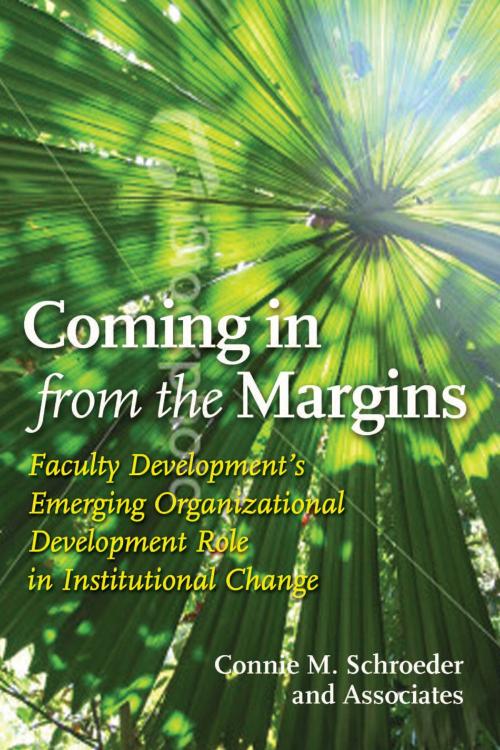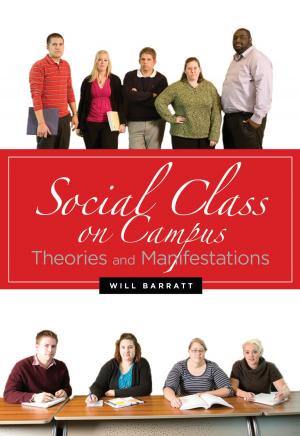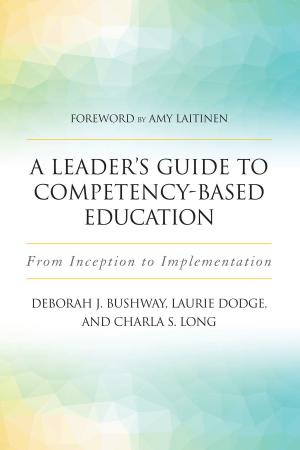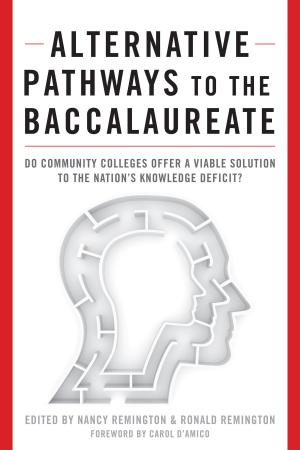Coming In from the Margins
Faculty Development’s Emerging Organizational Development Role in Institutional Change
Nonfiction, Reference & Language, Education & Teaching, Higher Education| Author: | Connie Schroeder | ISBN: | 9781579225049 |
| Publisher: | Stylus Publishing | Publication: | August 30, 2012 |
| Imprint: | Stylus Publishing | Language: | English |
| Author: | Connie Schroeder |
| ISBN: | 9781579225049 |
| Publisher: | Stylus Publishing |
| Publication: | August 30, 2012 |
| Imprint: | Stylus Publishing |
| Language: | English |
“…should be read by faculty developers and by all leaders in higher education involved in collaborative and cross-functional initiatives relating to student learning and institutional assessments."—The Review of Higher Education
“This important volume locates a key player – the faculty development professional – in the distributed leadership needed for institutional change. The authors provide insight into becoming involved in strategic planning, mission statement development, and collaborating with administrators. Schroeder notes the wholesale change in the identity of faculty developers, and identifies key enabling factors that alter faculty developers’ role to be more central to institutional direction setting. Comprehensive, practical, inspirational, and timely — a must have book for anyone in the profession."?Adrianna Kezar, Associate Professor, Rossier School of Education, and Associate Director, of CHEPA, University of Southern California
The core argument of this book – that a necessary and significant role change is underway in faculty development – is a call for centers to merge the traditional responsibilities and services of the past several decades with a leadership role as organizational developers. Failing collectively to define and outline the dimensions and expertise of this new role puts centers at risk of not only marginalization, but of dissolution.
The strategies in each chapter provide a practical resource and guide for re-examining the mission and structure of existing centers, or for designing new centers of teaching and learning and, most importantly, to develop their role as change agents.
“This important volume locates a key player – the faculty development professional – in the distributed leadership needed for institutional change. The authors provide insight into becoming involved in strategic planning, mission statement development, and collaborating with administrators. Schroeder notes the wholesale change in the identity of faculty developers, and identifies key enabling factors that alter faculty developers’ role to be more central to institutional direction setting. Comprehensive, practical, inspirational, and timely — a must have book for anyone in the profession."?Adrianna Kezar, Associate Professor, Rossier School of Education, and Associate Director, of CHEPA, University of Southern California
The core argument of this book – that a necessary and significant role change is underway in faculty development – is a call for centers to merge the traditional responsibilities and services of the past several decades with a leadership role as organizational developers. Failing collectively to define and outline the dimensions and expertise of this new role puts centers at risk of not only marginalization, but of dissolution.
The strategies in each chapter provide a practical resource and guide for re-examining the mission and structure of existing centers, or for designing new centers of teaching and learning and, most importantly, to develop their role as change agents.
“…should be read by faculty developers and by all leaders in higher education involved in collaborative and cross-functional initiatives relating to student learning and institutional assessments."—The Review of Higher Education
“This important volume locates a key player – the faculty development professional – in the distributed leadership needed for institutional change. The authors provide insight into becoming involved in strategic planning, mission statement development, and collaborating with administrators. Schroeder notes the wholesale change in the identity of faculty developers, and identifies key enabling factors that alter faculty developers’ role to be more central to institutional direction setting. Comprehensive, practical, inspirational, and timely — a must have book for anyone in the profession."?Adrianna Kezar, Associate Professor, Rossier School of Education, and Associate Director, of CHEPA, University of Southern California
The core argument of this book – that a necessary and significant role change is underway in faculty development – is a call for centers to merge the traditional responsibilities and services of the past several decades with a leadership role as organizational developers. Failing collectively to define and outline the dimensions and expertise of this new role puts centers at risk of not only marginalization, but of dissolution.
The strategies in each chapter provide a practical resource and guide for re-examining the mission and structure of existing centers, or for designing new centers of teaching and learning and, most importantly, to develop their role as change agents.
“This important volume locates a key player – the faculty development professional – in the distributed leadership needed for institutional change. The authors provide insight into becoming involved in strategic planning, mission statement development, and collaborating with administrators. Schroeder notes the wholesale change in the identity of faculty developers, and identifies key enabling factors that alter faculty developers’ role to be more central to institutional direction setting. Comprehensive, practical, inspirational, and timely — a must have book for anyone in the profession."?Adrianna Kezar, Associate Professor, Rossier School of Education, and Associate Director, of CHEPA, University of Southern California
The core argument of this book – that a necessary and significant role change is underway in faculty development – is a call for centers to merge the traditional responsibilities and services of the past several decades with a leadership role as organizational developers. Failing collectively to define and outline the dimensions and expertise of this new role puts centers at risk of not only marginalization, but of dissolution.
The strategies in each chapter provide a practical resource and guide for re-examining the mission and structure of existing centers, or for designing new centers of teaching and learning and, most importantly, to develop their role as change agents.















